Facts and Figures
It began July 28 1914, and lasted until November 11 1918.
There were over 37 million casualties in World War 1, with more than 16 million people dead. A third of the deaths were due to disease, like the Spanish Flu. - Wikipedia
These are from WW1 facts.
WW1 in Leeds
Project Inspire
Famous People from WW1
Famous People of WW1
Film
A Little Princess
Saving Private Ryan
All Quiet on the Western Front
War Horse
War Horse is a film set in 2011, about a young boy Albert, who raises a horse which gets sent out to war in Germany. He joins the war so that he can find the horse, and the films shows the journey in which the horse embarks on.
10 million horses died during World War 1. Before it was a film, it was a children's book written by Michael Morpugo in 1982, and it was then turned into a screenplay using a puppet horse.
This is from IMDb.
The opening scene shows the English countryside, before industrialization as it is set just before WW1. Stereotypical landscape.
Albert's first encounter with the horse, just as the mother has given birth to him.
In the village, horses are being sold, and the newborn horse is very agitated, playing up. He starts to be auctioned, and the Albert's dad pays 30 guineas for it. His friends mention how the horse isn't strong enough for ploughing the field, which is why it was bought.
His wife is livid that he spent so much money on the horse, because they need to pay rent. Albert offers to train the horse, and here he is feeding him. He says 'bet you're missing your mum. First time away from home', which relates to the young men who will go away to war.
Here is his mum doing housework while he trains the horse, which he names Joey. This is typical of what women were expected to do, as in that era they were expected to do household chores. This changed during the war when they had to do 'men's jobs' while the men were away.
As Joey needs to learn how to plough, this is Albert puts this ring round his neck so he can pull.
He tries to train him to be called at first and he is useless, but after perseverance, he eventually listens to Albert's owl calls.
The family's landlord comes to the house to say he needs to rent to be paid, or he will kick them out of the farm. We see how war is starting to affect people here as he says he needs the money as 'there's a war coming'.
The mother doesn't say anything to the landlord, just carries on cooking, showing women's roles in society.
The mother has stayed in the house so far, and most of the scenes have been her tending to the housework. Here she is knitting.
The village come to watch him train Albert, giving him support. He is useless, and it starts to rain so the people leave. However, the soft ground allows them to then start ploughing.
His parents find Albert asleep the next morning in the field with Joey, and the whole field has been ploughed.
We learn that Albert's father was in the Boer war, and earned the Distinguished Conduct medal and the South Africa Clean medal. Albert says 'I'd be proud' if he went to war.
The heavy rain throughout the night ruins the harvest, and the rent cannot be paid.
Someone drives through the village on a bike shouting to everyone 'We are at war. We are at war with Germany'.
People start enlisting to join the army.
Albert goes home and can't find Joey. He finds his dad is selling him to a soldier as he can't afford to pay the rent now the harvest is ruined. Albert cries and promises the horse he will find him. He gets 30 guineas for the horse.
The soldiers have a practise charge with the horses.
He is the fastest horse, with Topthorn being second. The two horses become friends and are together most of the film.
The soldiers go to France and talk through the plan of action about how they are going to attack the Germans.
A couple of the soldiers are getting anxious about attacking. British have half the soldiers (300) the Germans have, but they have the element of surprise on their side.
This scene shows the Germans run as they see that the British are charging towards them.
This shows the horses charging through their campsite. The British only have swords.
The Germans run to their machine guns and start shooting at the British, killing a lot of soldiers and horses.
The solider who bought Joey is shot and killed. Joey keeps on running through the forest, and the Germans try and calm him but he plays up. He sees Topthorn again and they nuzzle.
Albert gets a parcel back home from the solider who rode Joey, with pictures he drew of him. It also included a letter saying how Jamie died in action.
Two German brothers were looking after Topthorn and Joey after they found them with their riders. The Germans are giving orders, and one of the brothers is told to stay with the horses, and the younger one is told to pack to fight with the rest of the soldiers that night. His older brother plans for him to stay.
When the soldiers are marching, the older brother rides Joey with Topthorn next to him, and grabs his brother from the line and pulls him onto the horse. They hide in a windmill.
However, in the morning they are found by the other soldiers, and shot dead. The horses are still in the windmill, and a German girl finds them and gives them water.
In the house she is cooking, and tells her Granddad about the horses she found. She shows the horses to her Granddad, and names them. She tries to train Joey to jump, but fails, just like Albert did. She has the same attitude as him.
Soldiers start to arrive at their house, and her Granddad tells Emilie to 'hide them quickly', so she does in her bedroom.
They scavenge their house for food, pots and anything else they could use. They take everything.
For her birthday she gets a saddle which was her mother's, and she rides Joey over the hill where they live. However, the soldiers are there, and take her off the horse so that they can use him. She cries with her Granddad as they leave.
Soldiers kill a horse, and replace it with Topthorn. However, Joey runs up, and they take him instead.
They saddle him up, ready to tow a tank. He gets a bad leg from pulling it.
They load and fire the cannon, and soldiers on the other side look scared as the lights flash.
Four years later, it is the Battle of Somme, and Albert has now joined the war because he is old enough to.
A soldier orders the other soldiers to shoot anyone who turns back from no mans land in the trenches. They all have to climb up and fight.
This shows the soldiers in no mans land fighting and dying. The Battle of Somme is noted for how many soldiers we lost in one day (60,000).
Albert makes it to the German trench, but can't see anyone alive. Then, poisonous gas is released, engulfing the British soldiers.
Topthorn injures his leg badly while fighting with the German troops.
The vet lets him rest, and he stays there to die. Joey nuzzles him, then runs.
He runs away from the soldiers, and into no mans land.
He gets trapped in barbed wire. In the morning the soldiers look through their binoculars into no mans land and spot the horse is there.
Colin, a British soldier, waves a white flag and crosses into no mans land, to save the horse. A German soldier does the same, and comes with pliers. Together, they help the horse and have friendly small talk. An animatronic horse was usen for this scene.
They then start to argue about who gets to keep the horse, so flip a coin. The British win, and Colin takes him to were all the injured soldiers are.
Albert is injured from the poisonous gas, and with his blindfold on he doesn't see Joey walk past him in the wounded section.
Colin asks the doctor to look at the horse.
The doctor says the horse is too badly injured, and the right thing to do is to put him down. A soldier is about to shoot him when Albert hears there is a miraculous horse and knows it will be Joey. He starts to do the owl noise in cupped hands which calls Joey.
Just before he is about to be shot, Joey's head lifts as he hears the call. Albert can then be seen walking towards Joey.
The solider who is about to shoot Joey disagrees with Albert that he knows him, and says he is just a random horse. When Albert starts to describe his appearance (four white socks, and a white diamond shape on his head), another soldier starts to wash the muck of him to reveal these characteristics.
This shows the soldiers being told that the war is over.
Joey cannot be kept in Albert's possession because all horses belong to the government and have to be auctioned of.
All of the soldiers chip in to buy back the horse for Albert, and raise 29 guineas.
In the village at auction the granddad of Emilie buys the horse for 100 guineas, as Emilie has died and he wants it for her memory, but when he hears Albert's story he gives the horse back to him.
Albert is then seen riding Joey into the sunset back home to his parents.
From this film, I want to look further at the value of guineas, horses in the war, other films based on true events, women's roles and war medals.
War Horse: The Real Story
I watched the documentary War Horse: The Real Story, on 40D. These are the notes I took from it, and some stills.
When the war started in 1914, Britain was still a country which relied on horse power.
In 1914 the British didn't have enough horses to take on the Germans.
They only had 26,000 horses, they needed an extra 100,000.
They set up a census, so that the army knew where
all the horses were in the country.
Len Whitehead
They interviewed someone who had his horses taken from him for the army and he said:
'One thing that affected me was when they took the horses. We only had four'.
'I was sad all day at school, and I cried myself to sleep that night'.
'Boxer, Duke and Violet were there names. I never saw them again of course'.
Warrior became a well known war horse, rode by 'Galloper Jack' (Jack Seeley). He volunteered after been in the Boer war.
After the Calvary charge on august 24, two British battalions were defending their position, and they lost 250 men, as the Germans had machine guns.
'Transportation became the most important role for the horse'
Germans would put shells on the routes they thought the British would go down with the horses. The most dangerous area was a route towards the Belgium town Eep, called Hellfire Corner.
'When a horse is tired or cold pull his ears and handrub his legs, it refreshes him and he will appreciate it'- from handbook
'My horse Alfie was always rolling around in the mud, all the mud he could find! I was always washing him down'. - Smiler Marhsall, who was in the WW1.
Battle of the somme. Supposedly the German defenses were destroyed, and it would be a walkover. Thousands of horses were waiting to charge with the Calvary men.
Warrior was there and rearing to go. He was a symbol of hope for the men
'Warrior is fine, we are fine'. - Brough Scott, Seeley's grandson
The artillery bombardment failed to destroy the German defences. Almost 20,000 men died
'The men and horses who survived the somme then had to endure cold winter of 1916, where temperatures plummeted.'
'20 Horse hospitals were built behind the front lines'
'One unseen danger that threatened all horses' Germans would scatter cowtrops everywhere, in mud, puddles, it would go through the sole of the foot, and right up to the joint between the two toe points, it would become infected, and there would be no way to clean it. As they say 'no foot, no horse'.
60,000 were taken back to Britain and auctioned of and around half a million were sold to the French to help with the countryside
Warrior survived the war, and returned to Isle of Wight with Jack Seeley. Warrior died in 1941 when he was 33.
Blue Cross
There wasn't much information on the Blue Cross website at first, but when I typed in Blue Cross ww1, a historic gallery was featured on the Blue Cross website, where I found this video.
'The army had far too many horses at the end of the war, and the very best horses were sold back in Britain.'
'The horses were fundamentally important' - they pulled and towed equipment.
The Blue Cross and this poster was mentioned in the documentary, and altogether during the first world war, nearly £6.5m was raised for them. The money went to horse hospitals, veterinary supplies and ambulances for the horses at war.
Poppy Appeal
'The Legion is the biggest armed force charity in the UK.'
'We spend £200,000 pounds each day, every day on welfare support'.
My granddad has some medals from WW1 and WW11 which have been passed down in our family, and I spoke to him about them.
Whose WW1 medals are these?
Your great great great granddad, Fred Balderson, he fought in the first World War.
Did he survive the First War?
Yes, he came home although we don't know the exact duration he was in the war for.
Whose are the medals from the Second World War?
Fred had three sons, Jack, Tom and Fred Balderson. Fred was in the Second World War, but was killed by a sniper in Africa. When you served in a campaign you got a star, and the medal he got was the Africa Star. His father, Fred, then committed suicide because of his death.
These are from the First World War, and include the Soldiers PTE number.
These medals are from the Second World War, and include a sympathy letter from the King, as the soldier died in action.
My mum has a document on the 'Estate of William Alexander Mason' who was Fred Balderson's half brother, and his son is also mentioned to have 'died in World War 11'.
Grimsby Chums
Another member of my family was in the First World War, and is mentioned in the book 'Grimsby Chums'.
Regimental Sergeant Major Jack Jolly M.S.M was my great great great granddad and the Chums last RSM, who was also given the Meritorious Service Medal.
I wrote some notes that I found interesting down:
At the beginning of the war, 304 'Pals Battalions' were formed, by volunteers with a common interest, workplace or hometown. However, the 5th Battalion of the Lincolnshire Regiment decided to choose a different word - chums. More colloquial Grimsby words can be found here. A lot of schoolboys volunteered, and the Grimsby Daily Telegraph noted "to allay the anxious feelings of Grimsby mothers we may say that all our boys are in perfect health and enjoying themselves immensely".
On August 9th, the Mayor of Grimsby received a telegram from Lord Kitchener asking for 100,000 men to join the army and to form a new Battalion of the Lincolnshire Regiment.
On January 16th 1916 they went to France, and travelled to the Bleuville rest camp. They then went to their camp Wallon Capell by train, where they heard of the first casualty. It was General Fitton, who crossed open land to check his brigade's future camp, and was shot by a sniper.
On February 15th, Kitchener himself inspected the Chums, however he was late, and it was raining hard, therefore the soldiers were not impressed.
In the book, a lot of extracts from the soldier's letters home are featured, here is one by John Coddington: 'I have had a terrible time in the trenches. It was hell. It was a proper baptism of fire I can tell you. But we came out of it alright.'
Another, by Pte Coddington wrote: 'Be happy 'til I cross the sea and step on England's shore again. There's no place like good old Grimsby'. I liked this extract because Grimsby gets spoken of badly, and its good to see a proud Grimbarian, and makes me proud that so many fought in the war including both my great great great granddads.
The second chapter is about the Battle of the Somme, and the Chums, 15th Royal Scots, 11th Suffolks and 16th Royal Scots faced La Boiselle, a village in Northen France which was occupied by the Germans. It was completely destroyed during the Battle of the Somme, along with a village next to it, Ollivers. There were two valleys which paved the way to La Boiselle, and the one of the left was named Mash Valley, and the one facing the chums was called Sausage Valley. Even though the Germans dug 40ft into the ground, when the British fired 1513 shells into the German positions 'destruction and mayhem was all that waited them that day'. I was surprised to read this, as the Battle of the Somme is noted as a catastrophe for Britain, but this shows we achieved some victory.
However, on July 1st 1916, the Germans emerged from their positions with machine guns, as the 50lbs cases of ammonal which had been planted by the British in the ground didn't affect the Germans as it was too far away from their positions. Someone said 'we had not gone far before down went one man, then another and then another..'
The books goes on to describe many of the men who died, their names, ages, occupations, parent's occupations, and to me that makes the figures more real. To see just a figure of the people who died means nothing to me, but to hear about their story and life makes it sink in that these were people with families and lives who died.
'..lay 20-year-old Harold Cammack whose parents ran the Bull Ring Coffee Hall and John Campling, an only son, and Sydney White, the son of a town councillor. They were all dead.'
'Eason, who had only just celebrated his 21st birthday, was hit almost immediately. Several saw him fall.'
'Pte Joe Winship of C Company, who, moments before, had been laughing and joking at the thought of the walk-over to come, saw friends either side of him fall dead and took refuge in a shell hole'.
When I was reading this book, I didn't understand a lot of the terminology used, or the geography mentioned, but what I found interesting was the stories of the soldiers, and how much detail was mentioned about them, and the journey they went on.
Coins
In War Horse, guineas were mentioned, and they were also mentioned in the War Horse documentary. I have a book of coins from this era, and this is what they look like, and it has information about each penny.
Rationing in WW1
I looked at rations during the First World War, and they were brought in during the last part of the war in 1918. However, in 1914 soldiers in the trenches were given the following rations (which I found here):
•1 1/4 lb fresh or frozen meat, or 1 lb preserved or salt meat
•1 1/4 lb bread, or 1 lb biscuit or flour
•4 oz. bacon
•3 oz. cheese
•5/8 oz. tea
•4 oz. jam
•3 oz. sugar
•1/2 oz salt
•1/36 oz. pepper
•1/20 oz. mustard
•8 oz. fresh or 2 oz. dried vegetables
•1/10 gill lime juice (if fresh vegetables not issued);
•1/2 gill rum (at discretion of commanding general)
•up to 2 oz. tobacco per week (at discretion of commanding general)
They were bought in during 1918 because the German submarines had started sinking the ships which were bringing food to Britain, as they were still importing food. As they were brought in the last leg of the war, I decided to look at the Second World War rations, as they went on for nine more years even after the war had ended.
Rations books were introduced because the Germans were sinking the merchant ships going to Britain which were stopping meat, fruit and sugar from going to there. This meant that a lot of the food was homegrown so that people could make the most their meals. Chickens were also kept in gardens for meat and eggs, as eggs were rationed and there was only egg powder to replace it. Pigs were also kept in gardens for their meat. The Ministry of Food had a campaign called Dig for Victory which encouraged people to produce their own food, and it was very successful.
As the men were at war, this meant the women were doing a lot of the work, and the Women's Land Army was introduced, were women replaced farmers and did agricultural work. Conscription was introduced, and by 1944 there were over 80,000 members. Even though that was near the end of the war, rations didn't end until 1954.
Women had to be inventive with making meals, and that is the part that I am interested in.
I looked at a book called Eating For Victory which shows recipes that could be made during the War.
Women in War Effort











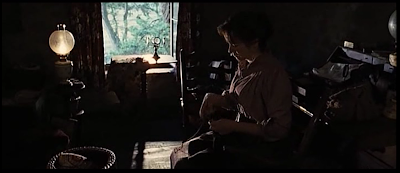











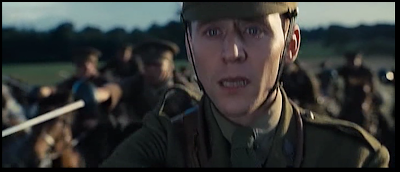






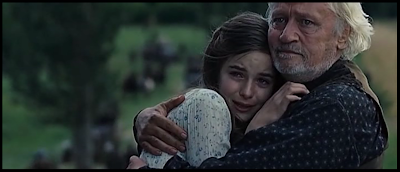




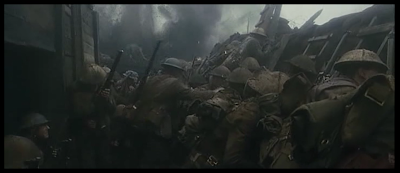





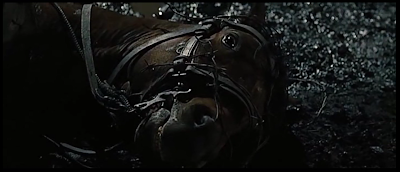



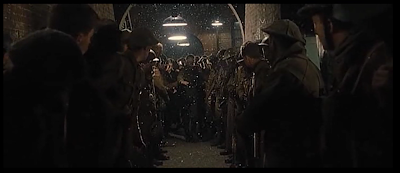









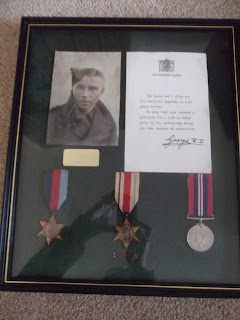















Leave your comment